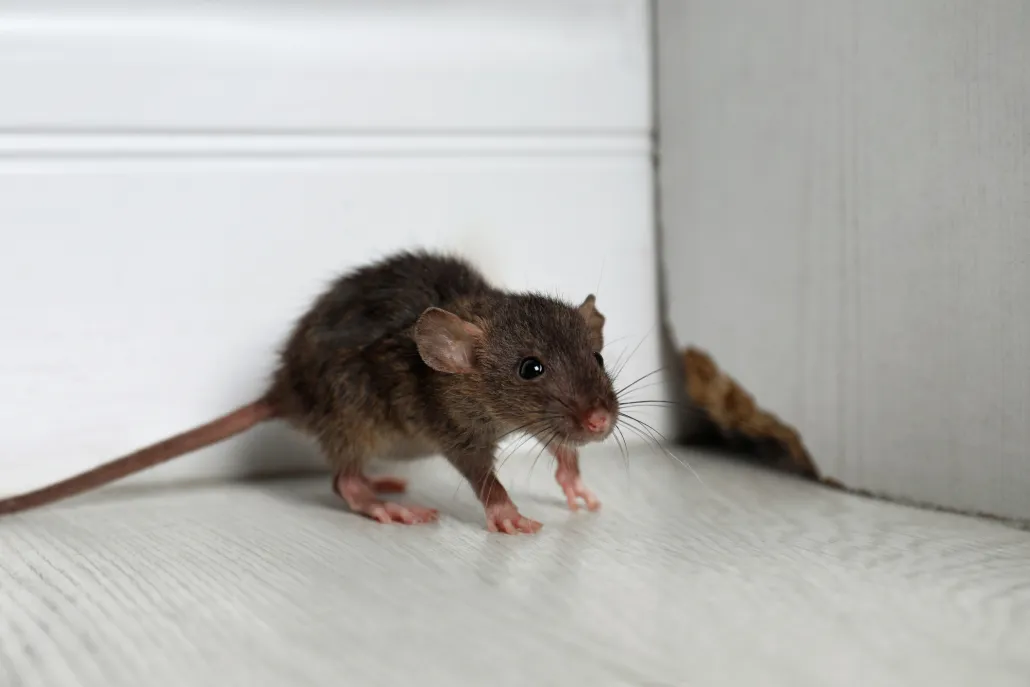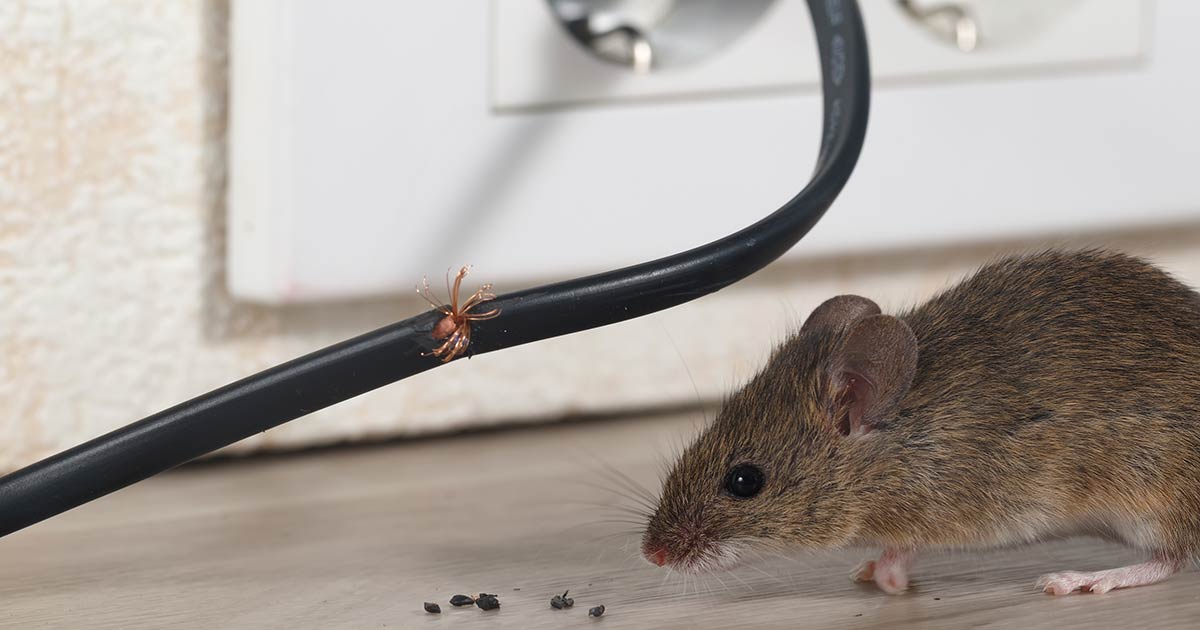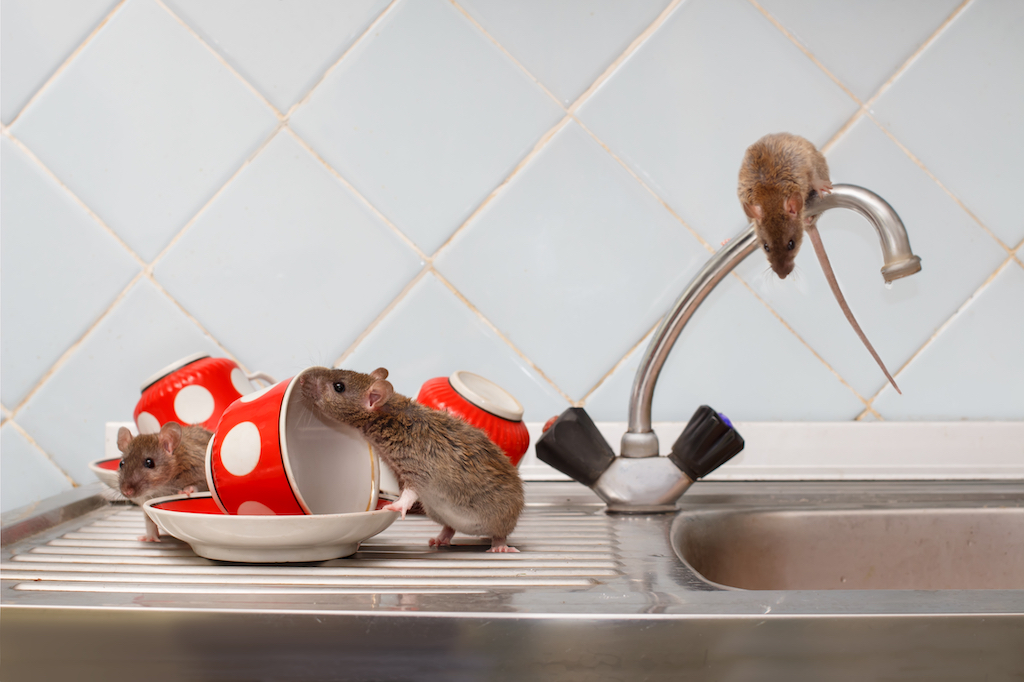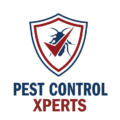Rodent Treatments in Florida
Exterminator Services for Haines City, Lake Alfred, Winter Haven, Lake Wales, Davenport, and Polk City
Rodent Control and Rat Removal in Haines City, Florida, Pest Control Xperts
Rodents are among the most destructive and dangerous pests that can invade a property in Central Florida. At Pest Control Xperts, we provide comprehensive rodent control and rat removal services to homeowners and businesses in Haines City, Winter Haven, and the surrounding areas. Unlike insects that can be treated with a simple spray, rodents require a strategic approach that combines removal, exclusion, and sanitation. Whether you are hearing heavy footsteps in your attic or finding evidence of chewing on your exterior siding, our team has the expertise to secure your home against these persistent invaders.
We specialize in handling the specific rodent species found in Polk County, primarily the agile Roof Rat and the burrowing Norway Rat. Our team understands how local construction features—like tile roofs, soffit vents, and crawlspaces—can inadvertently become highways for rodents to enter your living space. We focus on thorough pest inspection to identify entry points, safe pest management practices to eliminate the population, and dependable scheduling to ensure the job is done right. If you are ready to protect your property from damage and disease, we are ready to help.
Why Rodents Flourish in Florida

Rodent Problems We Solve in Haines City
A rodent infestation is a serious threat to both your property value and your health. Rodents are compelled to chew constantly to keep their teeth sharp, which means they often target electrical wiring, PVC water lines, and structural wood. In Haines City, this behavior can lead to costly repairs and even fire hazards. Beyond the physical damage, rodents carry pathogens and parasites that can contaminate insulation and air ducts, affecting the indoor air quality of your home.
We approach rodent control with a “whole home” philosophy. Simply setting a few traps is rarely enough to solve a verified infestation. We focus on pest tracking to map out their runways and nesting zones. Our goal is total infestation control, ensuring that we not only remove the current rodents but also seal the fortress so they cannot return. We provide the professional intervention needed to stop the destruction in its tracks.
Common signs of a rodent issue:
- Loud scratching, thumping, or running noises in the attic or walls
- Large, capsule-shaped droppings (1/2 to 3/4 inch long)
- Gnaw marks on door sweeps, eaves, or roof vents
- Dark, greasy rub marks along baseboards or entry holes
- Damaged or trampled insulation in the attic
- Holes chewed through food packaging in the pantry
- Pets appearing agitated or staring at the ceiling
- A musky, urine-like odor in garages or storage areas
Types of Rodent Issues We Handle
Roof Rat removal and attic control
The Roof Rat (often called the Citrus Rat) is the most common rodent pest in Haines City. As their name suggests, they are excellent climbers that prefer to nest in high places like attics, trees, and soffits. They often gain access to homes by running along power lines or jumping from overhanging tree branches. Once inside, they use the insulation as nesting material and can travel throughout the house via wall voids.
What we look for during inspection:
- Tree limbs touching or hanging over the roofline
- Damaged screens on roof vents or ridges
- Gaps where soffits meet the exterior wall
- Smudge marks on pipes or wires leading into the house
How we approach treatment:
We utilize heavy-duty snap traps placed safely in the attic or along runways to quickly reduce the population. We generally avoid using rodenticides indoors to prevent rats from dying in inaccessible areas. Our focus is on trapping combined with aggressive exclusion techniques for pests to seal off their high-entry access points.
Norway Rat control and burrow treatments
While less agile than Roof Rats, Norway Rats are larger and more aggressive. They typically enter buildings at the ground level and are known for digging extensive burrow systems under concrete slabs, sheds, and foundations. In our area, they are often found near canals or areas with heavy debris. A Norway Rat infestation can compromise the stability of walkways and lead to significant sanitation issues.
What we look for during inspection:
- Holes or burrows around the foundation perimeter
- Chew marks on the bottom of garage door seals
- Tracks or paths worn into the grass or soil
- Evidence of digging near utility lines
How we approach treatment:
We deploy tamper-resistant bait stations around the exterior perimeter to control the population before they enter. If they are already inside, we use strategic trapping methods. We also advise on landscaping changes to collapse burrows and remove the harborage areas that allow them to thrive near your home.
Rodent exclusion and structural repairs
The most critical part of rodent control is keeping them out. Rodent exclusion involves identifying and sealing every potential entry point that is 1/4 inch or larger. In the stucco and block homes common to Haines City, rodents often exploit construction gaps that homeowners never notice, such as the gap behind the gutter line or around AC refrigerant lines.
What we look for during inspection:
- Unsealed AC line chases
- Gaps in J-channels or siding corners
- Loose or missing dryer vent covers
- Cracks in the foundation or weep holes lacking screens
How we approach treatment:
We perform professional pest barrier installation using rodent-proof materials like steel wool, copper mesh, and industrial sealants. We seal the building envelope to physically block reentry. This pest proofing step provides long term pest control and protects your investment from future invasions.
Rodent sanitation and cleanup
Even after the rodents are gone, the mess they leave behind can pose a health risk. Droppings, urine, and nesting materials can harbor bacteria and attract other pests like roaches and flies. While our primary focus is removal, identifying contaminated areas is part of our service.
What we look for during inspection:
- accumulations of droppings in insulation
- Urine stains on drywall or ceilings
- Pheromone trails left on beams and pipes
How we approach treatment:
We apply sanitizing and deodorizing agents to treated areas to break down the organic waste and neutralize the pheromones that attract new rodents. This step is crucial for ensuring the hygiene of your home and discouraging re-infestation.

Our Rodent Inspection and Treatment Approach
At Pest Control Xperts, we treat rodent control as a construction and biology problem. We begin with a rigorous pest assessment service. We inspect the entire exterior of your home, looking for “conducive conditions” like overhanging branches or unsealed utility penetrations. We then inspect the interior, including the attic and crawlspace, to determine the species and the extent of the infestation.
Our treatment plan follows integrated pest management principles. We prioritize trapping and exclusion over the heavy use of poisons inside the home. This ensures safe pest management for your family and prevents the issue of decomposing rodents causing odors in your walls. We use high-quality traps and place them in areas where rodents are active but your family is not.
We view our service as a partnership. We provide you with a plan for preventative pest measures, such as sanitation improvements and landscape management. We may also install pest detection systems to monitor for activity after our initial service, giving you peace of mind that the problem is truly solved.
Rodent Prevention and Pest Proofing Tips for Haines City Homes
Preventing rodents is easier than removing them. In Florida’s lush environment, rodents are always present in the outdoors, but they don’t have to be in your home. By managing the environment around your house, you can create a buffer zone that discourages them from investigating your property.
Preventative steps that actually help:
- Trim trees and shrubs so no branches touch or hang over the roof
- Keep palm trees trimmed and remove loose fronds where rats nest
- Pick up fallen fruit (citrus, avocados) from the yard daily
- Do not leave pet food or water bowls outside overnight
- Ensure all garbage cans have tight-fitting, rodent-proof lids
- Store firewood and lumber on racks at least 18 inches off the ground
- Install a chimney cap and heavy-gauge screen over roof vents
- Keep bird feeders far away from the house or remove them if rats are active
- Seal any crack or hole in the exterior larger than a dime
- Remove dense ivy or vines from exterior walls as they act as ladders
Implementing these pest deterrent strategies makes your home less accessible and less attractive. Combined with our periodic pest inspections, you can maintain a rodent-free environment year-round.

Residential and Commercial Rodent Control
We serve a diverse clientele in Polk County. Our residential pest control services are tailored to protect families from the stress and damage of rodent infestations. We work with homeowners in communities like Grenelefe and Southern Dunes to ensure their properties remain secure.
For our commercial clients, rodents pose a threat to inventory, compliance, and brand reputation. We offer commercial pest services for warehouses, retail spaces, and food service establishments. We understand the specific documentation needs for audits and health inspections. Our team provides discreet and effective rodent management programs, utilizing exterior baiting stations and interior monitoring to protect your business assets.
Professional Rodent Extermination vs DIY Methods
When facing a rodent issue, many homeowners head to the hardware store for snap traps or bait blocks. While DIY methods can catch an unwary mouse or two, they often fail to solve a full-blown infestation. Rodents are intelligent and cautious; if they witness a trap kill another rodent, they may become “trap shy.” Furthermore, placing loose poison bait in an attic is dangerous. It can lead to secondary poisoning of wildlife or pets, and often results in rodents dying inside walls where they cannot be retrieved.
Professional rodent extermination brings expertise and exclusion to the table. We know how to set traps to maximize catch rates. More importantly, we have the skills to find and seal the entry points that DIYers overlook. A rat only needs a half-inch gap to enter; finding every single one requires a trained eye. We use professional-grade exclusion materials that rodents cannot chew through. By hiring a professional, you ensure the problem is solved at the source—the entry point—rather than just treating the symptom.
Frequently Asked Questions About Rodent Control
Do you provide rodent control in Haines City and nearby areas?
Yes, we serve Haines City, Winter Haven, Lake Alfred, Lake Wales, Davenport, and Polk City. We are your local specialists for rat and mouse problems.
What is the difference between a mouse and a rat infestation?
Mice are smaller and tend to infest kitchens and lower cabinets. Rats are larger, louder, and typically inhabit attics or crawlspaces. We treat both but the strategies differ.
How do rats get into the attic?
Rats are excellent climbers. They often run up power lines, climb rough stucco walls, or jump from tree branches onto the roof. Once there, they enter through vents or soffit returns.
Do you offer dead animal removal?
We remove rodents caught in our traps or accessible dead rodents found during our inspection. If a rodent has died inside a wall void, we can discuss options for odor control.
Is the exclusion work guaranteed?
While we do not use the word guarantee, we stand by the quality of our construction work. We use durable materials designed to withstand weather and gnawing.
Will the traps hurt my pets?
We place traps in areas inaccessible to pets, such as attics or behind appliances. If we use bait stations, they are tamper-resistant and locked to prevent pet access.
How long does the service take?
The initial inspection and setup take a few hours. The trapping process typically requires several follow-up visits over 2 to 4 weeks to ensure the population is depleted.
Is there a local rodent exterminator near me?
Yes, Pest Control Xperts is your local provider for Haines City and the surrounding Polk County communities. We are nearby and ready to help.
Service Area for Rodent Control in and Around Haines City, Florida
Pest Control Xperts is proud to serve the residents of Polk County. We know the local neighborhoods and the specific rodent pressures they face. From the lakeside properties of Winter Haven to the rural outskirts of Polk City, we are dedicated to keeping your homes rodent-free.
We serve the following communities:
- Haines City
- Winter Haven
- Lake Alfred
- Lake Wales
- Davenport
- Polk City
- Dundee
- Loughman
We are just a phone call away. Zip codes we serve: 33844, 33845, 33850, 33880, 33881, 33837, 33896, 33897, 33868, 33853, 33859.
Conclusion
Rodents are persistent and destructive, but they are no match for a professional plan. At Pest Control Xperts, we have the experience and the tools to evict these unwanted guests and seal your home against their return. Don’t let rats or mice damage your property or threaten your health. Reach out to us for a comprehensive solution.
Contact us today to schedule your inspection and protect your home from rodents.
